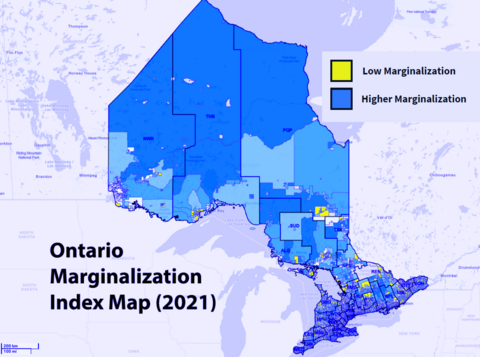Ontarians Want Provincial Government to Prioritize Spending on Public Hospitals Not Private Clinics: New Poll
Ontarians Want Provincial Government to Prioritize Spending on Public Hospitals Not Private Clinics: New Poll
Vast majority say there isn’t enough staff in public hospitals, including 82 per cent of Ontario PC supporters
TORONTO--(BUSINESS WIRE)--Nearly three in four Ontarians believe the government should prioritize spending on public hospitals rather than private clinics, in a poll conducted following the recent budget announcement of $280 million being shunted to private, for-profit clinics. Eighty-four per cent of Ontarians also said they believe public hospitals are understaffed.
The Nanos poll was conducted between May 27 and June 1, surveying 1,017 Ontarians over the age of 18. The poll was commissioned by CUPE’s Ontario Council of Hospital Unions (OCHU-CUPE), which released a supplementary report on the ongoing privatization of hospital services.
“This poll shows there is overwhelming opposition to this government’s plans to privatize hospital surgeries,” said Michael Hurley, president of OCHU-CUPE, which represents 50,000 hospital and long-term care staff. “The public understands that spending on private, for-profit clinics and agencies is much more expensive, comes with poorer outcomes and duplicates infrastructure and administration. The vast majority wants our resources allocated to public health care.”
While the government expands funding to for-profit clinics, over four in five Ontarians (84%) believe there is not enough staff in public hospitals – including 82 per cent of Ontario PC supporters.
In the recent budget health care funding increased two per cent, well below the annual health care inflation of 5.2 per cent, noted the union.
After significant privatization of cataract surgeries, the government plans to expand private, for-profit delivery of other procedures including knee and hip replacements as well as diagnostics. In 2023, Premier Doug Ford suggested that up to 50 per cent of surgeries could be performed outside of hospitals.
“This is startling given that for-profit surgeries in Ontario are twice as expensive as those performed in public hospitals,” said Hurley.
The OCHU-CUPE report highlights the findings of a 2024 Canadian Medical Association Journal study showing that privatization of cataract operations resulted in surgical rates increasing by 22 per cent for the wealthiest Ontarians while declining for everyone else. Access to surgeries for the poorest people in Ontario declined nine per cent. The study noted that hospitals provided equal access to care.
At the media conference, the union showed a visual representation of this inequality through a map of Ontario’s neighbourhoods, colour-coded by socioeconomic status. The yellow areas representing the wealthiest neighbourhoods showed the most affluent Ontarians are clustered in enclaves that are barely visible amidst a sea of blue (representing the bottom 80 per cent of residents).
“People can’t afford to pay thousands of dollars for health care,” Hurley said. “The great majority of Ontarians reject this expensive privatization that bakes in inequalities and greatly reduces access.”
The Ontario Health Coalition has documented hundreds of cases of private, for-profit clinics billing patients for medically necessary services – which is illegal – and add-on services that patients felt compelled to purchase.
Sixty-seven per cent of respondents to the Nanos poll said it was unacceptable for private clinics to charge people for medically necessary services.
The union expressed concerns about the acceleration of privatization, citing the CMAJ study’s findings showing that since expansion of public funding for cataract surgeries in Ontario, 22.5 per cent of these procedures were performed in private clinics.
:gv/cope491
Contacts
For more information please contact:
Zee Noorsumar, CUPE Communications,
znoorsumar@cupe.ca
647-995-9859

